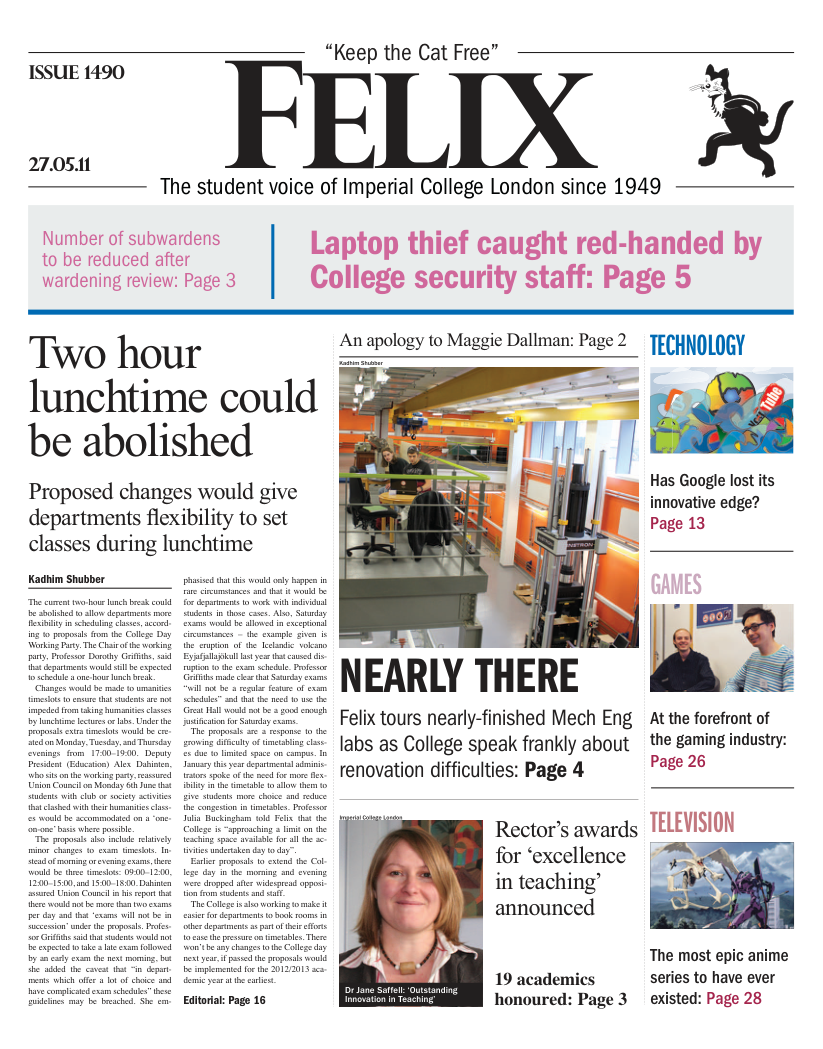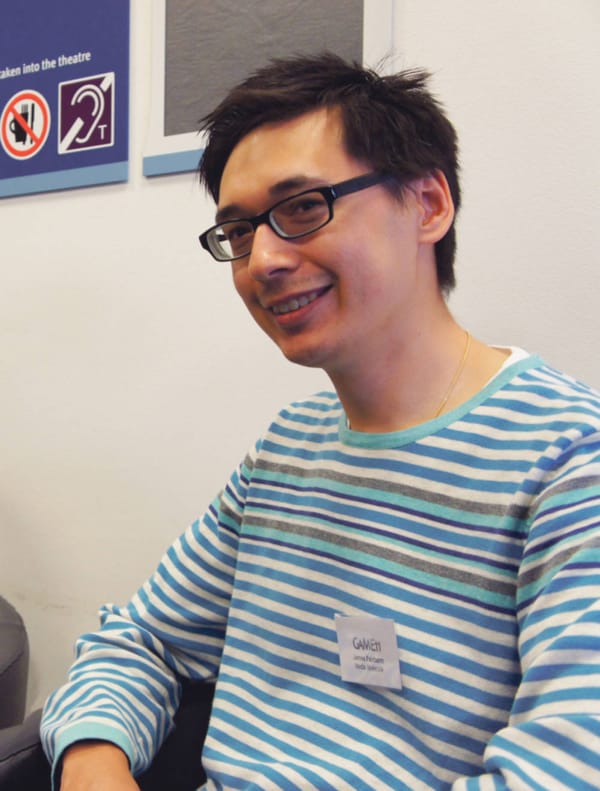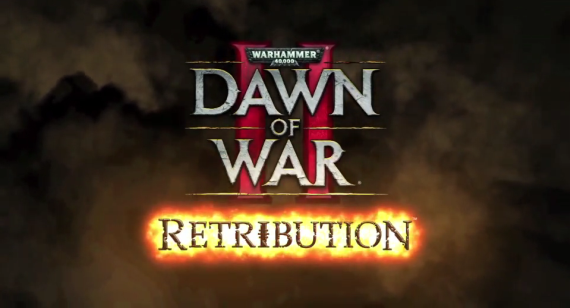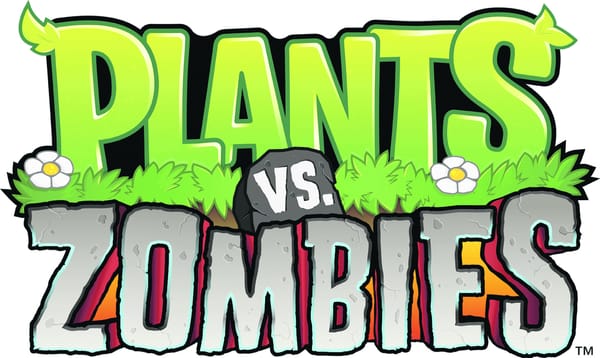GaME 2011: Marc Hull from Frontier Developments
Simon Worthington chats to Imperial alumni Marc Hull about the gaming industry
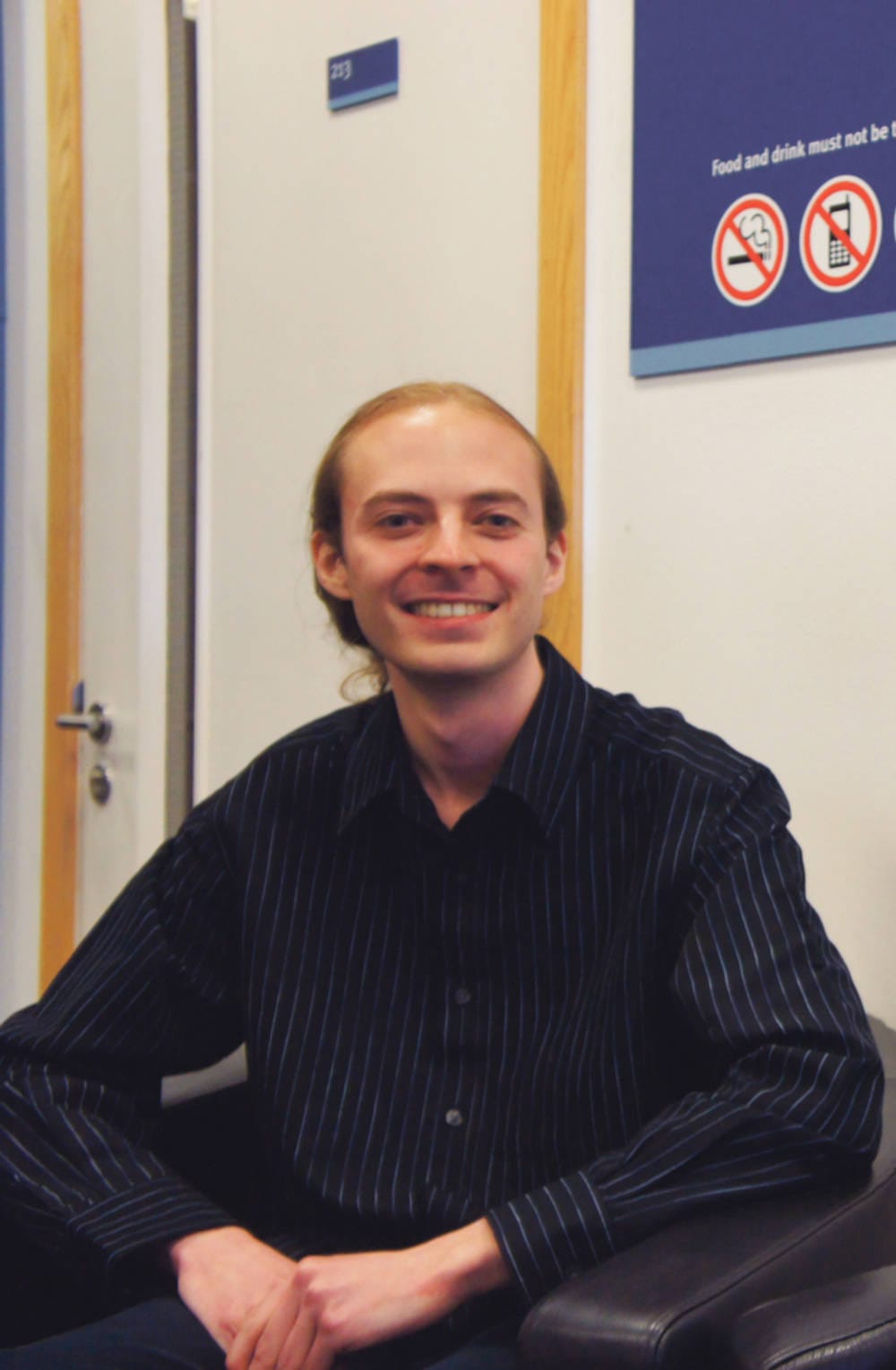
So what did you study at Imperial?
I did Computing, graduating in 2006. I then started doing a PhD and then got lured away by the games industry after 1 year of that – I never completed it. I joined Frontier in 2007 and I’ve been working there ever since, so yeah, that’s about three and a half years now.
What did you start your PhD in?
It was actually in city generation for games. The first year I did research into that sort of stuff and just had little demos of things. The main idea was to use genetic algorithms to try and generate cities that were aesthetically pleasing and fulfilled requirements. But, I never finished that so I probably shouldn’t talk too much about it!
So you started your PhD and then got lured away - what was it that lured you away?
I guess I always intended to go into the games industry at some point. I suppose I had this impression that it was very difficult to get into – I tried to actually get an industrial placement as part of my course with a few different games companies, and they all basically said ‘no’ without even considering me. They didn’t look at my CV or anything. It was just, “no, we don’t do placements”, so that gave me the impression that it was going to be pretty tough. When I was doing my PhD I attended one of these [GaME] events back in 2006, and David Braben, who’s the founder of Frontier, was giving a talk and I talked to him afterwards about it and he said, “well, you know, come and do a placement at Frontier”. Initially it started as a placement and I just continued working there afterwards, much to the disappointment of my supervisor.
You said you always intended to go into the games industry, but when did you first feel that that was what you wanted to do?
Probably from six or seven years old! I used to play tonnes of games, I still do play a lot of games. It was always something I was interested in – I learnt to program in BASIC and Pascal fairly early on. I was a bit disappointed that at school there weren’t many opportunities to do that sort of thing, but it was great to then come to Imperial and learn how to program properly, with good designs. So, it’s just something I’ve pretty much always wanted to get into.
You also said that as a student you had this impression that the games industry was hard to get in to. Do you still think that, or has that changed?
Mainly I thought it was difficult because when I tried to get an internship during my undergraduate I found it so difficult. I think a lot depends on catching development teams at the right time, because if they’re right near the end of the project and they’re just trying to get this game out, they’re probably not going to want to take on a new person and train them up. I think it’s just understanding when companies are realising games and making sure that you’ve asked them early enough. Obviously you need to be a good programmer – when I joined Frontier there was a programming test I had to pass. I don’t think it’s all that difficult and if it’s something that you really want to do then it’s just a case of applying to lots of different companies and hoping that one of them takes an interest and takes you on.
What’s your role at Frontier?
I mainly work on two things. We have this tool which allows our animators to put their animations in the game and set blend weights and stuff like that. I do a bit of work on that, and I help animators set up all that stuff, and I make sure that our back end animation system is doing whatever it needs to. The other main thing I work on at the moment is ‘avateering’ [full body tracking] related stuff, which is basically mapping what you’re doing in front of Kinect onto a virtual character in the game and making sure it matches your actions very closely. Most of this requires obviously doing quite a lot of programming in C++. We do a fair amount of scripting in Lua as well, but also a lot of the job is talking to animators and designers and artists, and making sure that what they wanted to see in the game actually ends up in there, and just supporting them to make the game hopefully look as good as it possibly can.
Is there anything you did at Imperial that you feel was advantageous or disadvantageous?
I guess Imperial [computer science] teaches you a broad range of subjects, and most of them do end up being useful in different ways. Just learning how to do good code design and different design patterns and stuff like that was really helpful. One thing at the time was that Imperial didn’t teach C++. I think the computing department now does have C++ course in the second year, but I might be wrong about that [he’s not]. That’s something that always surprised me – that a lot of universities don’t teach C++ despite it being one of the most popular languages out there.
So you feel that it’s mainly your course that got you where you are?
Yeah, before I came to Imperial I knew some programming but my design was terrible, and it really got me to appreciate how if you’re working in a large team of people you do have to put care into your design and make sure you code is reusable and stuff like that. That’s probably the main thing that the university course teaches you – getting you out of all the bad habits that you pick up if you teach yourself how to do things.
What sort of things would you say to people at Imperial who might have done a bit of programming and might be interested in getting into the games industry but aren’t computer scientists?
I would probably say that they shouldn’t be put off by the fact that they’re not computer scientists. Frontier does actually hire a lot of people from other disciplines. Normally when we hire someone who isn’t a computer scientist, we will show them exactly how we set the code up and make sure they don’t feel uncomfortable or like they’re being asked to do more than they can do, but at the same time they probably should make every effort to try and learn C++. It’s an incredibly complex language, probably too complex for it’s own good sometimes. When I got there, I just read through the code base and saw how people were doing stuff and copied that, and just built up from there. It didn’t take long to do that. Obviously it helps to know other languages beforehand, so try to learn a language in your spare time and go from there. But don’t be put off by it!
A lot of Imperial students seem to be focused on finance, and big money. You obviously didn’t take that route – are you glad you didn’t?
Yeah, definitely. I know quite a lot of people who work in consultancy and financial roles, and they tell me about the stuff that they’re working on and it’s definitely not something that would interest me very much. I like to work on things which are graphical, and where I can see this product on shop shelves and see people enjoying playing it. I think games is a really creative thing to be part of, and even if you’re doing a really scientific part of it the creativity still spills over into what you’re doing. Working with artists and designers is really enjoyable, and I don’t think you get that sort of experience working for a bank or a purely software company. That’s why I really like the games industry!
For any student wanting to get into the industry, have you got any other top tips?
It’s definitely beneficial I think to have a demo of your work. I didn’t(!) when I applied, which is maybe why I found it difficult to get internships beforehand. Certainly if you can show them stuff that you’re working on, just to show that you have this interest and you can do this stuff, then that’s always good!

